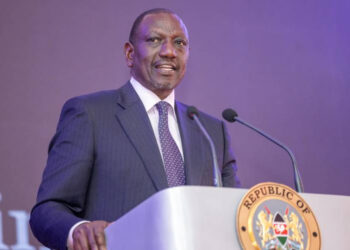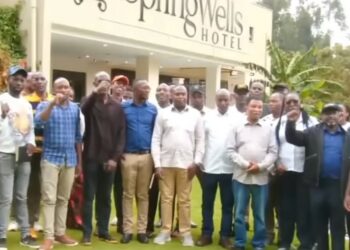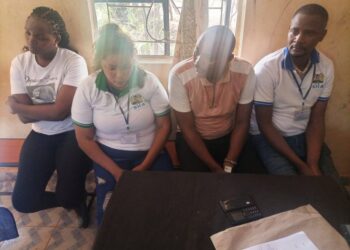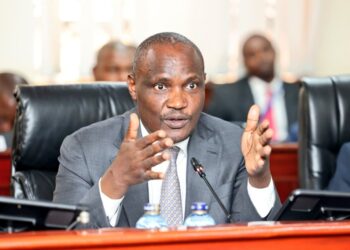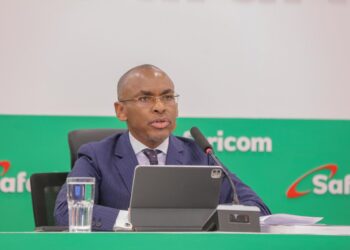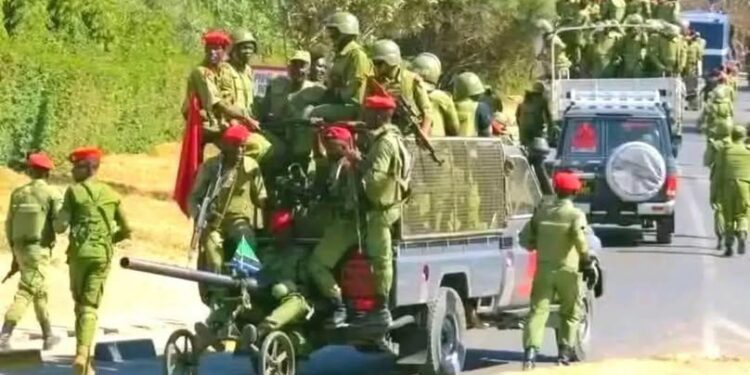Tanzania’s election curfew and internet shutdown gripped the nation Wednesday night, as authorities rolled out a 6 PM nationwide lockdown amid escalating street clashes during the fiercely contested general polls, severing digital lifelines and plunging East Africa’s powerhouse into an eerie silence that amplified fears of a deepening democratic crisis.
The decree, announced by Home Affairs Minister Innocent Bashungwa in a terse state radio broadcast at 4 PM, caught even seasoned observers off guard. “Public unrest threatens stability,” Massawe intoned, his voice crackling over static-filled airwaves.
“Effective immediately, all movement ceases after 6 PM until dawn. Violators face arrest. This safeguards our democratic process.” By sunset, the Indian Ocean horizon glowed blood orange as patrols of uniformed officers fanned out from Arusha to Zanzibar, their flashlight beams slicing through gathering dusk.
In the capital, where ballot boxes still awaited final counts from Tuesday’s voting, the streets emptied faster than a tropical downpour, leaving only the hum of idling troop carriers and distant chants fading into the night.
Internet services, the oxygen of modern dissent, went dark around 5:30 PM, courtesy of a government throttle on telecom giants Vodacom and Airtel.
Users mid-scroll saw feeds freeze on half-loaded memes mocking incumbent President Samia Suluhu Hassan’s landslide projections, then nothing.
VPN whispers and Starlink hacks surfaced in offline huddles, but for most, the blackout meant isolation. “My family’s in Dodoma; now I can’t even text to check if they’re safe,” lamented a 34-year-old teacher huddled in her Kariakoo flat with blackout candles flickering.
Her words, shared later via smuggled audio clips, echoed a chorus of frustration from youth who had turned TikTok into a protest playlist just hours earlier.
The unrest traces its roots to election day flare-ups, where Chadema opposition strongholds like Morogoro saw queues dissolve into stone-throwing melees after alleged ballot snatches. Reports, pieced together from eyewitness texts before the cutoff, tallied at least 15 injuries in Mwanza’s port clashes, with tear gas clouds lingering over fish markets turned battlegrounds.
Human Rights Watch slammed the measures as “draconian overkill”, their pre-blackout statement blasting the curfew as a ploy to mute monitors and muffle tallies.
“Internet shutdowns aren’t security; they’re sabotage,” said regional director Zama Coursen. “Tanzania’s voters deserve transparency, not blackout.” President Hassan, campaigning on a platform of post-Magufuli thaw, had pledged freer polls after her 2021 ascension.
Yet, with rivals like Tundu Lissu still caged on sedition raps, scepticism simmered. CCM party diehards hailed the clampdown as “prudent parenting for a rowdy child”, but in Zanzibar’s clove-scented alleys, where semi-autonomous votes doubled the drama, whispers of secession stirred anew.
A local fisherman, voice muffled over a crackling shortwave, griped, “We fish by stars now, not screens. But who watches the watchers?” Economically, the pinch hit quick.
Dar’s forex bureaus shuttered early; tourists at the Serena Hotel traded poolside selfies for anxious group chats on satellite phones.
The agriculture minister’s office scrambled to assure coffee exporters that export logs wouldn’t rot in digital limbo, but farmers in Kilimanjaro’s misty slopes fretted over unsent orders.
Youth unemployment, already a tinderbox at 14 per cent, fuelled the fire; jobless grads saw the polls as a last shot at change, only to watch it snuffed by curfew sirens.
As midnight tolled under a star-choked sky, vigilante patrols formed in low-income estates, neighbours trading battery-powered radios like contraband.
State TV looped footage of orderly queues from “safe zones”, but bootleg videos, airdropped via Bluetooth chains, painted grittier canvases: elders barricading polling stations with boda boda tyres and women in hijabs linking arms against baton charges.
International eyes turned sharper; the African Union dispatched envoys Thursday, while the U.S. Ambassador Michael Battle said from a secure line, “Urge restraint and restoration of access. Democracy thrives on light, not lockdown.”
Tanzania’s election curfew and internet shutdown aren’t mere crowd control; they’re a seismic shift in a country long balanced on CCM’s tightrope.
With results due Friday, the pre-dawn hours stretch like suspense in a spy thriller. Will the blackout birth bolder underground networks or bury the ballot’s buried secrets?
